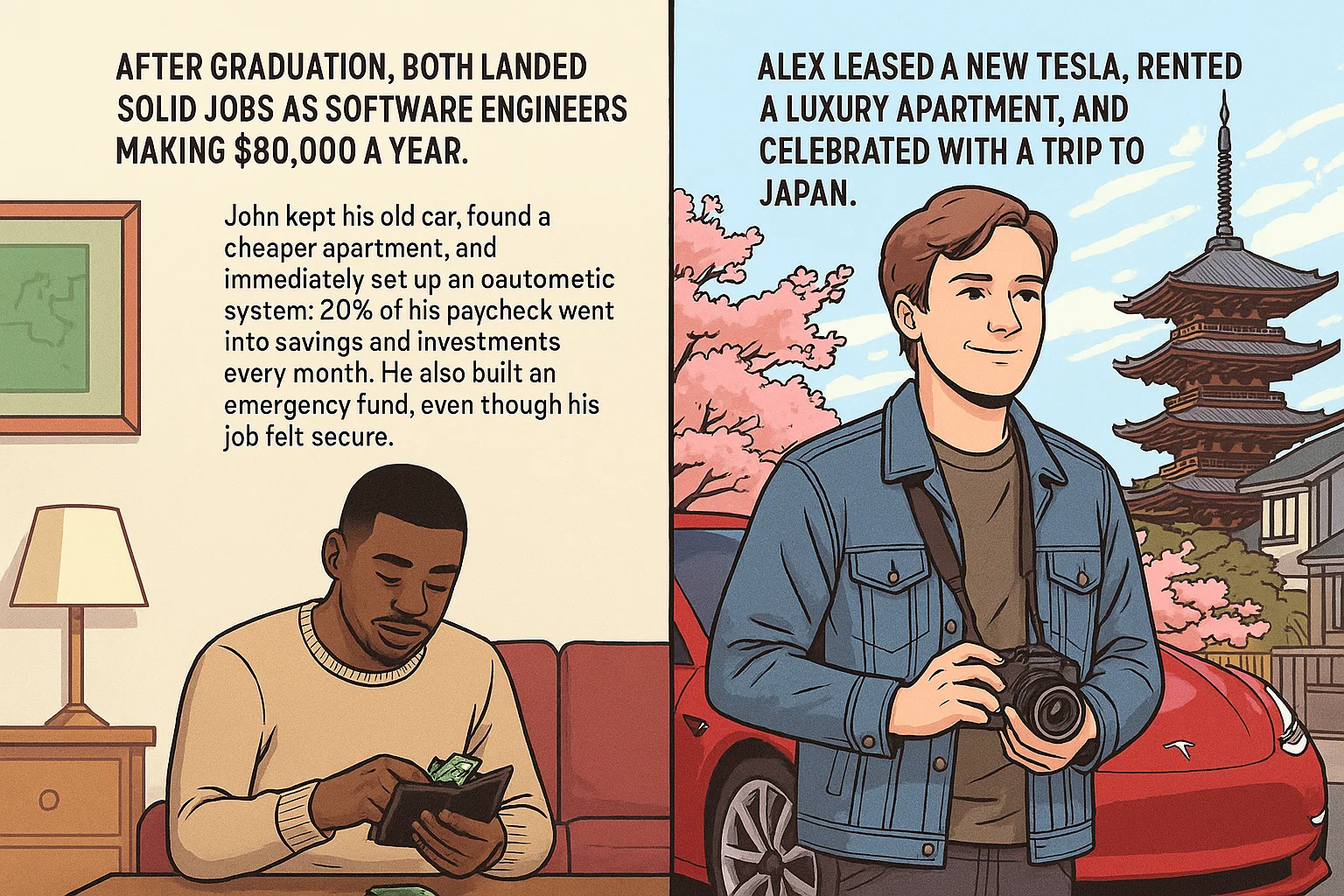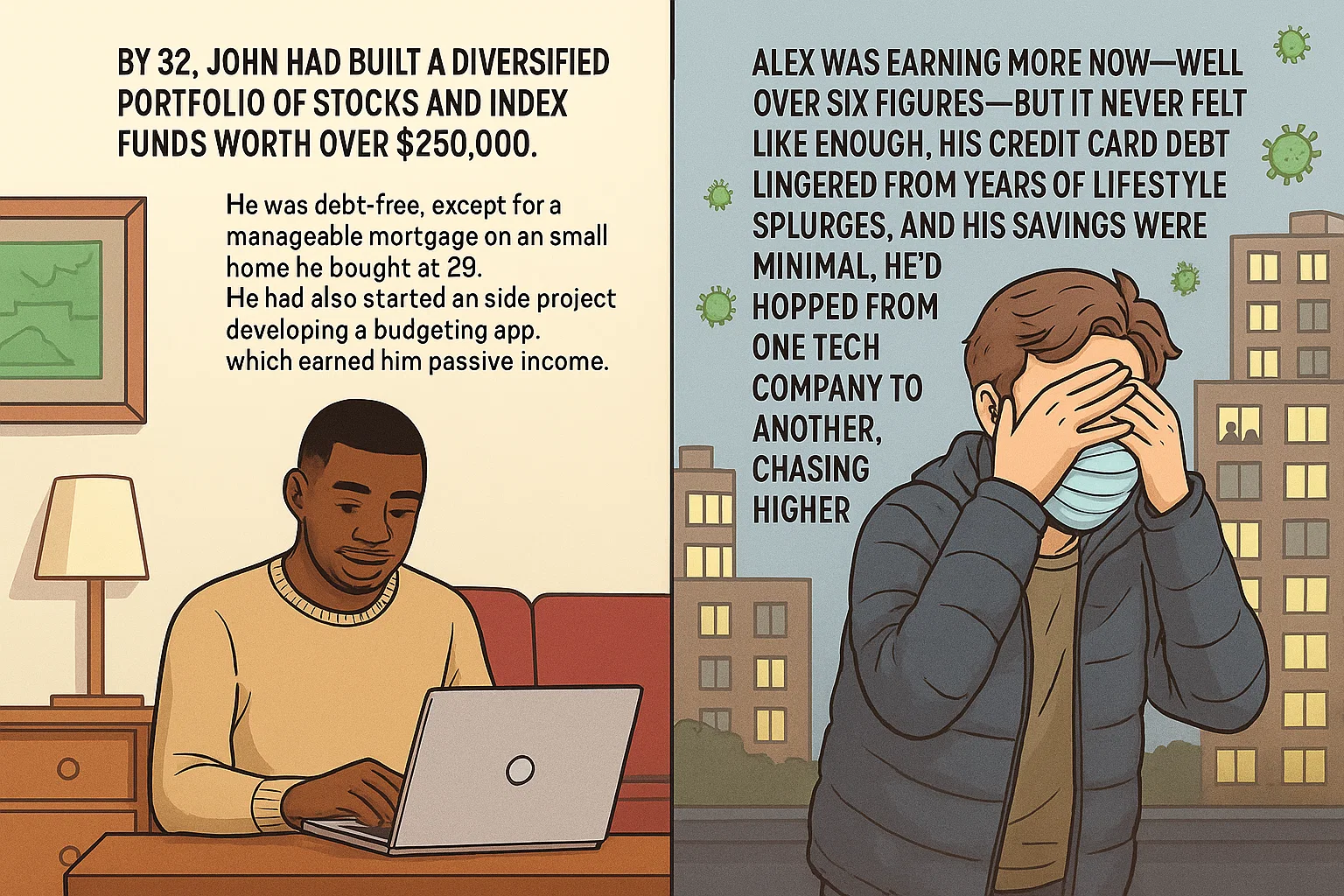Why is it so important? - The Story of John and Alex

This story started from two friends, John and Alex. They had grown up together in the same quiet suburb, went to the same schools, and even studied the same major in college, computer science. Both came from middle-class families and were given similar opportunities in life.
But beneath the surface, there was one key difference: John had a strong interest in personal finance. Even while buried in lines of code and programming projects, he made time to read books on saving, investing, and budgeting. He watched videos about the stock market and followed financial podcasts during long debugging sessions. Alex, on the other hand, found personal finance dry and complicated. “I’ll deal with money stuff once I start earning more,” he often said.
After graduation, both landed solid jobs as software engineers making $80,000 a year. Alex leased a new Tesla, rented a luxury apartment, and celebrated with a trip to Japan. While John took a more modest route, he kept his old car, found a cheaper apartment, and immediately set up an automatic income system: 20% of his paycheck went into savings and investments every month. He also built an emergency fund, even though his job felt secure.

By 32, John had built a diversified portfolio of stocks and index funds worth over $250,000. He was debt-free, except for a manageable mortgage on a small home he bought at 29. He had also started a side project developing a budgeting app, which earned him passive income.
Alex was earning more now (well over six figures) but it never felt like enough. His credit card debt lingered from years of lifestyle splurges, and his savings were minimal. He’d hopped from one tech company to another, chasing higher salaries, but the cost of his lifestyle rose just as fast. When he unexpectedly lost his job during the coronavirus pandemic, he had no emergency funds and ended up borrowing money from family.

Lesson
Earning a high salary doesn’t guarantee wealth.
It’s what you do with the money that matters.
Financial literacy is just as important as life skills.
John’s early habits gave him long-term freedom. Alex’s avoidance cost him years of opportunity.
Avoiding lifestyle inflation is crucial.
Living below your means (even temporarily) can build a foundation for lasting wealth.
Start investing early.
In finance, compounding matters. Time is your greatest asset.
Side projects will pay off.
John used his skills not just for employers, but for his own growth and financial independence.
“Knowledge can change your fate.”
Next, we’ll cover the basics that you should know before getting start.
TNT Meaning
We’re a platform that publishes enlightening articles for everyone to read & discuss. Our mission is to bring new meanings into readers’ lives through our article on every Tuesday.
Comments must not include discrimination, hatred, violence, or pornography messages. Once we find that, the comment will be deleted, and the publisher may be banned from leaving any comments permanently.
